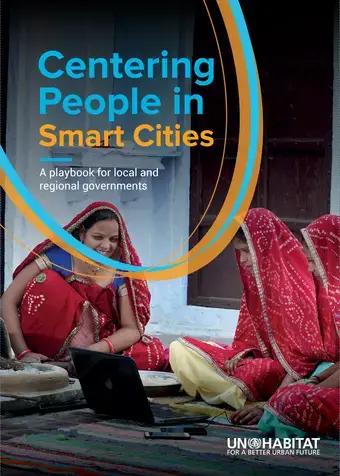
Country Profile
The Kingdom of Cambodia’s urban areas grew at a 4.5% annual rate from 2000 to 2020. The draft National Urban Development Strategy within Vision 2030 of Preah Sihanouk province emphasizes the need for sustainable city planning.
Although the Kingdom of Cambodia does not have an explicit National Urban Policy, it has a working draft of National Urban Development Strategy translated in Khmer and English. This aims to create sustainable cities, as seen in the Preah Sihanouk’s 2030 plan.
OUR WORK
National Urban Policy (NUP) is a coherent set of decisions via government led actors that coordinates various actors towards a common goal and vision for long term, resilient urban development.
UN-Habitat continues collaborating with Ministry of Land, Infrastructure and Transport (MOLIT) of Republic of Korea in supporting development of National Urban Policies (NUP):
UN-Habitat’s People-Centered Smart Cities Approach (PSCA) promotes deployment of technology and innovation to ensure sustainability, inclusivity, prosperity and human rights in cities By creating a framework that centers people in smart city development, the delivery of policies and programmes can be more inclusive and responsive to their needs.
Korea-funded NUPP seeks to integrate PSCA into NUP to promote and achieve transformative, inclusive, green, productive and resilient urban development.
objectives
This programme aims at promoting a people-centered smart cities approach through National Urban Policies to ensure the increased focus on mainstreaming sustainable and inclusive digital transition in high level political forums on urban policy sensitive and people-centred smart cities in the Kingdom of Cambodia
Project document
Project Title |
National Urban Policy Programme, Phase Two: Scaling Up People-centered Smart Cities through National Urban Policy |
|---|---|
| Country | Kingdom of Cambodia |
| Overall Objective | Promote a PSCA through National Urban Policies in Preah Sihanouk Province, Cambodia |
| Key Ministry | Preah Sihanouk Provincial Administration in consultation with Smart City Steering Committee, Ministry of Land Management, Urban Planning and Construction, Ministry of Interior |
| Internal Stakeholders | Lead organizational Unit: Policy, Legislation and Governance Section
Implementing Unit: Cambodia Country office with the support from HQ Project team Collaborating Units: Urban Practices Branch, Global Solutions Division/ External Relations, Strategy, Knowledge and Innovation Division, Programme Development Branch, HQ/ Regional Office for Africa, other Regional Offices (ROAP, ROAS and ROLAC) |
| External Stakeholders | MOLIT of the Republic of Korea
National governments and local authorities of other participating countries |
| Country Contact | Duk Hwan Son: Senior Programme Officer, UN-Habitat (duk.son@un.org)
Vanna Sok: Habitat Programme Manager, UN-Habitat (vanna.sok@un.org) |
| Major Outputs | One (1) revised/updated land management policy with PSCA in Preah Sihanouk Province
Three (3) acupuncture projects/pilot interventions implemented based on an action plan |
| Budget | USD284,000 |
| Duration | November 2022 – October 2026 |


